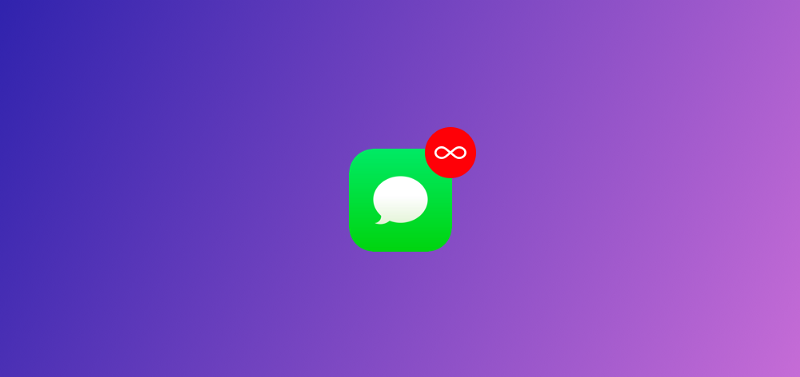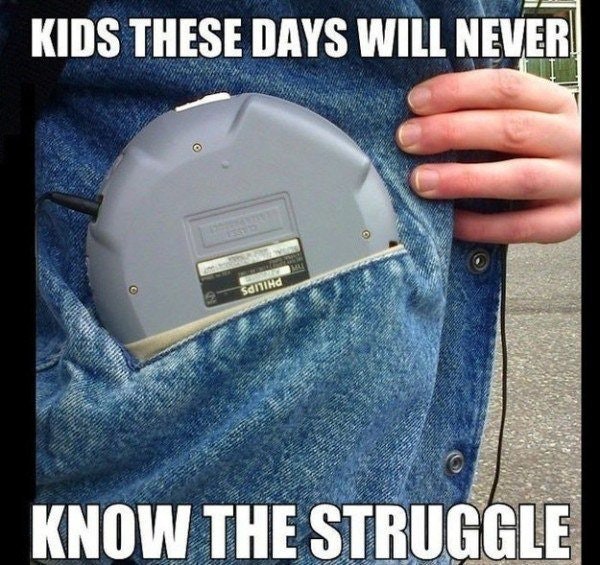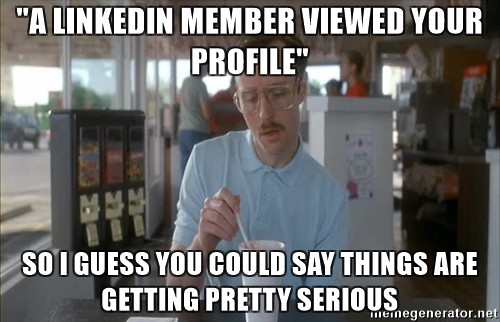by Vinny
Up next: nothing? How information overload is impacting our brains.

15 years ago, I made two major choices before I went to school in the mornings. I picked what cereal I would have (how good were Ricicles?), then sifted through my CD collection before popping one into my Discman for the day.

Sure, there were some other micro-decisions in there. But with these two major choices out of the way, I could get ready for school and pop down the road to the bus stop, cranking my CD of choice. It was probably ska punk. (And I’m not embarrassed by that in the slightest).
I’d arrive at the bus stop and hang out, waiting for the bus to come. Listening to my music. I’d get on the bus, stare out the window and keep listening. The album would probably be repeating by the time I got to school, disconnected, and went into the music rooms to play guitar.
This is a completely unremarkable story. My mornings were not exciting.
Then vs. now
However, try being a kid going to school today. Most adolescents own at least one device. According to Pew Research Centre, 73% of teens had access to smartphones a couple years ago.
Think of that same journey I took 15 years ago. Today, it’s not so simple. Armed with a smartphone and a Spotify subscription, the music choice grows from around 50 CD’s to over 30 million songs. Even when you manage to choose an album, what are the chances you’ll keep listening until the end?
Never mind the overwhelming choice of songs. There’s the notifications you’ll encounter along the way. Vibrate. Facebook memory. Vibrate. Someone mentioned you on Twitter. Vibrate. Someone viewed your LinkedIn profile.

Gone are the days of staring out the window. On my tram rides these days, all I see are people staring down, engaged in screen time. Whether they’re playing games, checking on social media, or engaging in notifications, suddenly listening to music isn’t the primary activity. It’s the supplement, the background music to our own little smartphone worlds.
This matters.
I care about this — but not because I think we should all be paying attention every second and talking to every stranger who sits beside us on the bus. 15 years ago I didn’t engage socially at all. But I got to start my day by mindfully listening to music.
Hugh Van Cuylenburg (check him out) talks all about this as part of “The Resilience Project.”
According to Hugh’s research, approximately one in seven primary school kids suffers from mental health issues. Primary school kids. Around 30 years ago, this figure was closer to one in 50.
Is this really surprising? Given that the amount of information we receive in a week equals the amount of information we used to receive in a year, I would argue not (Hugh’s data here, dating back to 2014).
More crazy data stats?
A piece written in 2013 by Science Daily suggests that 90% of the world’s data was generated between 2011 and 2013.
While I’m not a psychologist, I can interpret what the experts tell us. It’s not a stretch to say that information overload is having a very real impact on our lives. Especially on those of us who are privileged enough to have access to smartphones and all those other devices.
Examples of unnecessary attention drain
On Netflix, what happens when you end an episode? The next one is lined up. Read a news article on your website of choice — in Australia, mine is The Age — and an auto-play video greets you. When you watch a Facebook video, they’ll scroll you onto the next one when you’re done.
In fact, what are you going to encounter at the bottom of this article? Why, I imagine some links to “related content.”
Yes, algorithms are getting better all the time and related content is getting more relevant. What does that mean? More wasted time on Facebook. That “quick look at a notification” turns into five minutes watching the “greatest premier league goals from the 1990’s.”
Fun? Yes. Life-improving? Not so much.
We encounter so many notifications. And we touch our phones 2,617 times a day — how crazy is that? So the last thing we need is stuff like this:
This battle for our attention has only increased over the past few years as technology advances and we get smarter with data. Technologies like AI make it easier to provide more relevant content which sucks us in more than ever before. Phones are like slot machines in our pockets, and we are being trained to check for variable rewards.
Our days are filled with useless notifications. And worst of all, they pop up on even more devices than ever. Our time between screens is pretty much sleep. That’s it.
This can’t be good. We can talk up all the technological advancements we’ve made, and some are great. But when are we going to stop and think about the psychological consequences of what we are doing?
Do we stop building things?
No. I’m not promoting not making stuff. I’m not against companies making money — I wouldn’t have a job if there wasn’t a business aspect to what we do.
I’m promoting questioning why we create what we create. We need to educate the people who use our products. Those who aren’t designers or psychologists in our companies might not understand just how big an impact our products can have.
As a product designer, I believe that it’s important to engage and delight customers. This keeps them coming back and spending money on the products I create. But I also think that this engagement needs to have a human foundation.
Being “user-centric” doesn’t simply mean you use personas as part of your design process. It means you genuinely empathize with the people who buy your products. They should come back to a product because you’ve made their lives better or they need to do something. Not because you’ve hooked them in to wanting to complete some kind of streak.
So what do we do?
Hugh (from The Resilience Project) argues for the importance of three basic pillars: empathy, mindfulness and gratitude. And I couldn’t agree more. So how do we practice them?
Everyday things you can do
- Create time in your daily routine for actively practicing gratitude. It could be keeping a gratitude diary, going for a walk, or creating time to call some important people.
- Try meditation. It’s not for everyone, but with apps like Headspace and Calm, and great free options as well, its definitely worth giving it a whirl. There’s certainly enough credible research out there to suggest that this technique can have physiological benefits (ie. it quite literally changes your brain).
- Practice empathy by making sure you are engaging in things like active listening. Are you guilty of texting when talking to your partner? Are you guilty of saying “at least…” when someone really just wants you to say “that sucks”?
Making your products better
- How ‘bout this: let’s think before using things like autoplay. Apple’s latest version of Safari for Mac OS X actually disables it by default — that’s a nice start!
- Do we need to play a video when loading a news article? Probably not. Maybe lining up the next episode on Netflix isn’t so bad – but we should question the impact of these decisions, not blindly proceed.
- Question things. Hold people accountable. We can’t make people change their minds, but let’s make sure they know exactly what they are doing. Note our concerns and concede defeat when we have to, but make sure we leverage our skills while seeking answers.
- Use liminal thinking to make sure we are empathizing with our customers. Encourage it in our leaders. Show, don’t tell. Use stories to communicate our customers’ problems and needs to stakeholders.
- Know to whom you are speaking, and serve content in a digestible way. Empathising is not just for users, but for internal stakeholders as well. View the world their way.
Keen to learn more? Read and watch the following from people much smarter than I:
Conquering Digital Distraction
Sinan Koçaslan/iStockphoto Digital overload may be the defining problem of today's workplace. All day and night, on…hbr.orgHome - The Resilience Project
"The feedback on this session has been overwhelming....we have to roll this out all over the state" Kerryn, Statewide…theresilienceproject.com.au
Thanks so much for reading! If you liked the article, give me some claps so more people see it. Please follow me on Twitter @doublethought, and if you enjoy this kind of content, join my mailing list below!